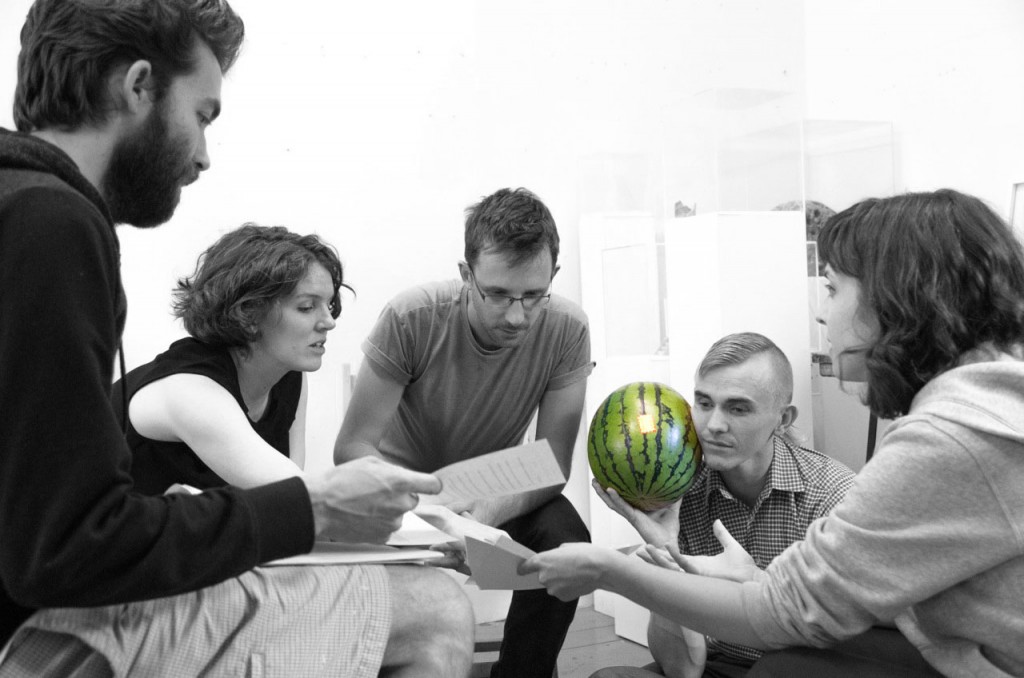Update: second performance, UEA Drama Studio, Norwich, 21 October 2014, 7.30pm. Additional performers: Rebecca Tamas, Lawrence Bradby.
Our first performance: Rich Mix, Bethnal Green. 7.30pm, Sun 28 September 2014.
We’re really honoured that Marian Hazlitt has written an introduction to the first performance by Mopha collective:
INTRODUCING MOPHA
I’m sitting in on a Mopha rehearsal. We’re in Patrick Coyle’s studio, and Emma Bennett is throwing a watermelon to other members of the collective, who are catching it with varying degrees of skill. She explains that she’s interested in ‘effort noises’, a phrase she learnt from absent Mopha member, Holly Pester. Efforts noises are the non-verbal sounds that radio actors make when they want to suggest invisible actions. A classic of the genre, apparently, is Shula climbing onto a horse in the Archers.
James Wilkes is also into radio sound effects. ‘It’s about the disjunction between eye and ear’, he says to me later. ‘Radio producers are often aiming for a concrete, realist sound world, but the ways of doing that are totally absurd. Like making the sound of a fire by popping bubblewrap.’ His piece for the Rich Mix show, ‘Live Realist Spacewalk’, combines meticulously transcribed dialogue from a spacewalk on the International Space Station with the tropes of sci-fi films and patently inadequate sound effects.
For Tamarin Norwood, the Mopha project is a chance to explore ideas, already developed through her practice in video and sculpture, around drawing, blindness, touch and instruction. With their inevitable errors of transcription, the works that she’s made develop a slowly emerging collective theme: the utopian idea of describing something perfectly, and the stubborn failure of words to be equal to the world itself.
Patrick’s contribution to the night, ‘Horse d’oeuvre’, not only picks up on Emma’s reference to Shula’s horse, but further undercuts any attempt to formulate a logical science of style. His work begins with a phrase taken from the 19th-century philosopher Herbert Spencer, concerning the correct ordering of a banal description of a horse; before long though, this fragment of language mutates, through chance algorithms, into something much stranger.
The last time I saw SJ Fowler on stage, he was in character as a sinister compere summoning the voices of the dead. This foray into theatre has clearly taken root, as he delivers a claustrophobic, repetitive miniature play for three characters and a director. Despite its overtones, this seems to be as much about what happens when you ask non-actors to act as it is homage to an absurdist tradition.
A few weeks later, I catch up with Mopha again. Appropriately perhaps, the watermelon has disappeared from the performance: Emma’s piece has evolved, and she’s now working on something derived from Basil Fawlty’s pathological relationship to the objects around him in Fawlty Towers. But the watermelon is there somewhere in the background, one more absent object amongst the many that this collaboration conjures.
Marian Hazlitt
